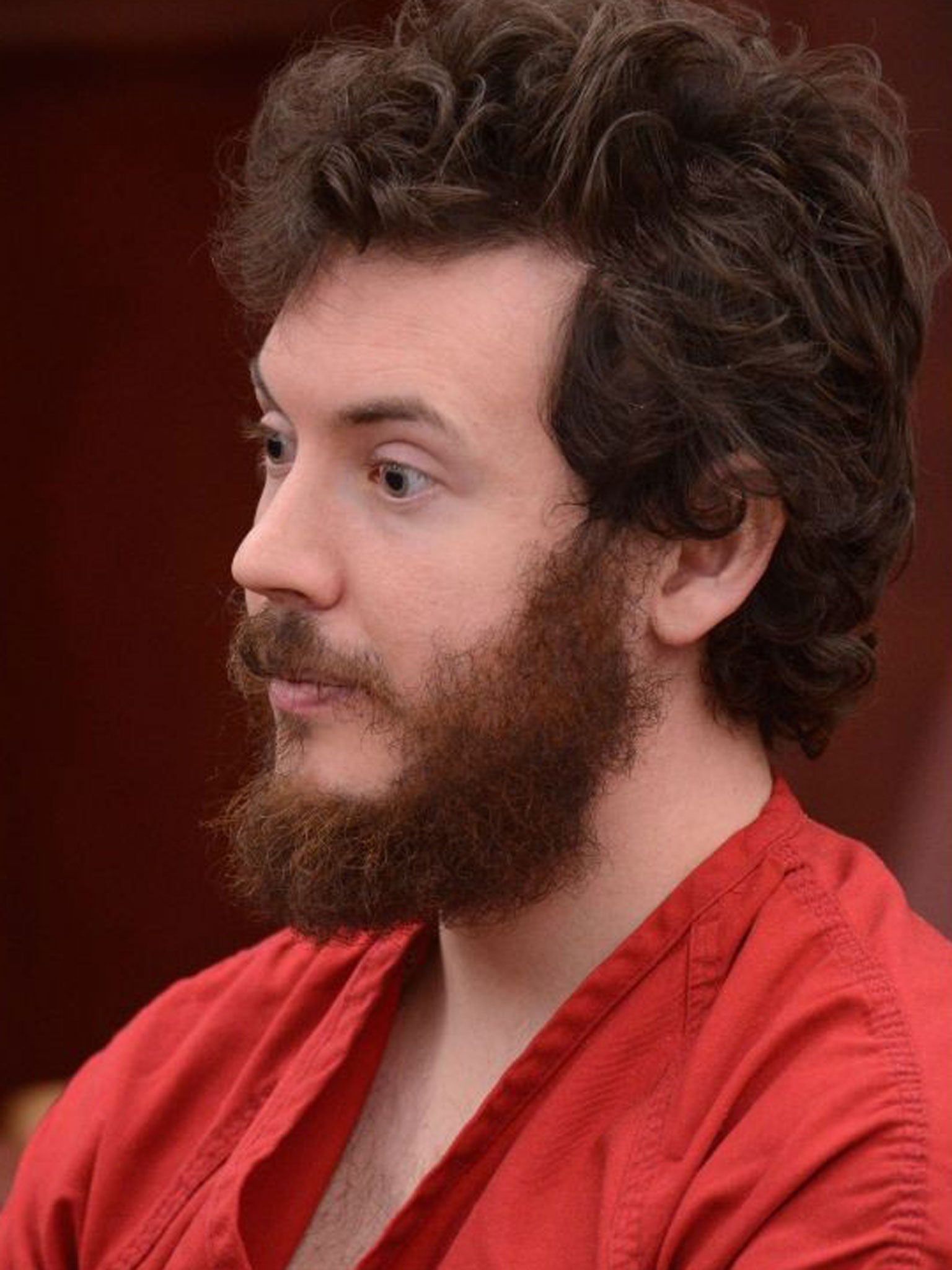James Holmes changes plea to not guilty through insanity over Batman cinema massacre in Aurora, Colorado that killed 12
The cinema shooter - at a premiere screening on the Dark Knight Rises - killed 12 and injured 70

Your support helps us to tell the story
From reproductive rights to climate change to Big Tech, The Independent is on the ground when the story is developing. Whether it's investigating the financials of Elon Musk's pro-Trump PAC or producing our latest documentary, 'The A Word', which shines a light on the American women fighting for reproductive rights, we know how important it is to parse out the facts from the messaging.
At such a critical moment in US history, we need reporters on the ground. Your donation allows us to keep sending journalists to speak to both sides of the story.
The Independent is trusted by Americans across the entire political spectrum. And unlike many other quality news outlets, we choose not to lock Americans out of our reporting and analysis with paywalls. We believe quality journalism should be available to everyone, paid for by those who can afford it.
Your support makes all the difference.The man accused of killing 12 and injuring 70 when he opened fire on a crowded cinema has pleaded not guilty through insanity.
James Holmes, a 25-year-old former neuroscience graduate student, is accused of spending months gathering weapons and ammunition, scouting a cinema and booby-trapping his apartment.
On July 20 last year, an armour-clad gunman slipped into a midnight screening of the newly-released The Dark Knight Rises at the Century cinema in Aurora, Colorado. He then tossed two hissing gas canisters and walked up the aisle firing the gun.
No motive has emerged in nearly 10 months of hearings, but Holmes' lawyers have repeatedly said their client is mentally ill. He was being treated by a psychiatrist before the attack.
A judge entered a standard not guilty plea on Holmes' behalf in March, and he needs court permission to change it. Holmes' lawyers have held off on changing his plea until now, fearing a wrinkle in the law could cripple their ability to raise his mental health as a mitigating factor during the sentencing phase.
Holmes' lawyers announced last week that Holmes would ask to change his plea at the hearing. It is seen as his best chance of avoiding the death penalty.
The insanity plea carries risks for both sides. Holmes will have to submit to a mental evaluation by state-employed doctors, and prosecutors could use the findings against him.
"It's literally a life-and-death situation with the government seeking to execute him and the government, the same government, evaluating him with regard to whether he was sane or insane at the time he was in that movie theatre," said lawyer Dan Recht, a past president of the Colorado Criminal Defence Bar.
Prosecutors must convince jurors beyond a reasonable doubt that Holmes was sane. If they fail, state law requires the jury to find him not guilty by reason of insanity.
If acquitted, Holmes would be committed to the state mental hospital indefinitely.
The mental evaluation could take weeks or months. Evaluators will interview Holmes, his friends and family, and if Holmes permits it, they'll also speak to mental health professionals who treated him in the past.
Join our commenting forum
Join thought-provoking conversations, follow other Independent readers and see their replies
Comments